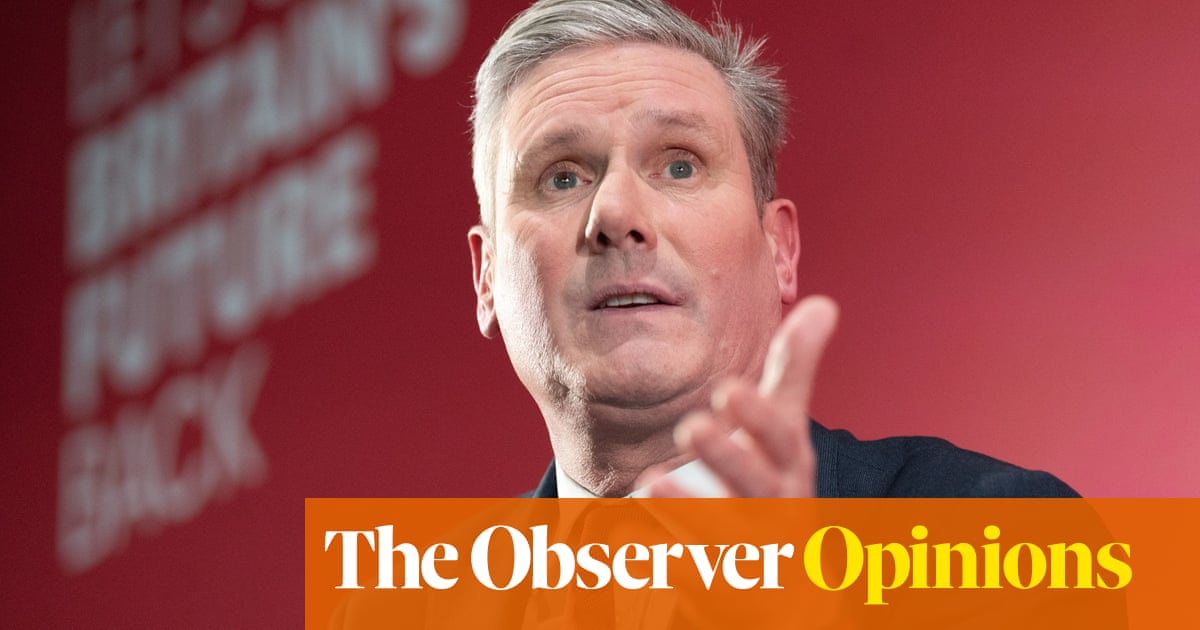
It’s a mandate to do politics differently, Keir Starmer announced after the general election. After the chaos of the Conservative years, those were truly welcome words. Some said it made them feel as though the grownups were back in charge. But now, six weeks on, that turns out not to be so true.
Everybody needs a holiday. A proper holiday. A break from routine. A chance to relax, and focus on other people and other things. Prime ministers unquestionably need such moments, too – perhaps more than most. Yet by first postponing and now, it appears, by cancelling his family summer holiday in Europe, Starmer has made holidays a reputational issue. Starmer the human being has lost out to Starmer the politician. It is his first serious mistake.
Starmer will have given himself all kinds of excuses. He will have felt that the state of the world and the country demands his presence throughout August after all. He will have told those close to him that when prime ministers cross the threshold into No 10, they cross a line that separates them from their previous lives, and from the rest of us. It means that they cannot behave like normal people any more. But it is still a mistake.
Granted, there is no shortage of serious and persuasive reasons for Starmer’s choice. Iran is threatening to deepen the crisis in the Middle East. British people may need airlifting from the danger zones at very short notice. Back home, the country is still shuddering from the racist riots. There will be Cobra meetings to chair and decisions to take. But there are other competent ministers who can take them and there is Sue Gray to guard Starmer’s back. A prime minister still needs a break, even if it is with his teenage children.
Part of the problem was the election timing. There’s an obvious reason why Britain has never had an August or a September election since 1900 and why July elections are super-rare, too. A July election means the new regime is no sooner in office than the country heads to the beach. Apart from this year’s, there has only been one other July election out of the 32 contests since 1900. That was in 1945, and holidays of any kind weren’t on the agenda after six years of war.
Undeniably, the riots were a major test. But I assume Starmer still has his mobile. I suspect the deeper reason, though, is the fear of criticism when modern Britain cuts its politicians so little slack. The days when Stanley Baldwin could head to Aix-les-Bains for the summer and avoid looking at the British or French press while he was there have gone. The days when Harold Macmillan could refuse to leave the grouse moors of Yorkshire in August to return to London just because the East Germans were erecting a wall across Berlin belong to the past.
In a sense, Starmer is the victim of some of his recent predecessors, Tony Blair and Boris Johnson in particular. Blair was a hard worker who needed his breaks. Johnson was just lazy. But they both liked their family holidays in the sun, preferably in the privacy of someone else’s villa and, in Johnson’s case, accompanied by murky financial explanations. Neither of them was willing to pander to the censoriousness of the press about doing so.
Temperamentally, however, Starmer is not like Blair or Johnson. But nor is he naturally austere, as Gordon Brown was. He is more obviously comparable to John Major, whose annual holidays in Spain or Portugal never sparked controversy, or Theresa May, whose summer Alpine walking breaks created little debate. He should follow their lead.
How to holiday obviously has special problems for Labour prime ministers. Labour leaders tend to lack the private wealth of their Conservative counterparts. For that reason – and because they also lived in less prosperous times anyway – Ramsay MacDonald and Clement Attlee made great use of Chequers, the prime ministerial country residence in the Chilterns. This summer, Starmer may now do the same.
As the postwar era became more affluent, Harold Wilson built a small bungalow, Lowenva, in St Mary’s in the Isles of Scilly, which he would use, in part, as a summer backdrop against which to advertise his common-man tastes to visiting journalists. James Callaghan bought a Sussex farm in 1968, which became his summer base and was where he spent much of his retirement. Attlee and Blair eventually bought properties close to Chequers, too, while MacDonald and Brown retained roots in Moray and Fife, where they had respectively grown up.
Starmer stayed in the Lake District while he was opposition leader, but he is surely entitled to relax there, or on the continent, as prime minister, too. Perhaps the most useful advice to follow from among his predecessors is from Baldwin, who liked Aix-les-Bains for the hill-walking, which improved his fitness, and because, as he wrote: “It is difficult to travel like a private person, so I have formed the habit of going to the same place, where everyone knows one and they leave one alone and respect our desire for peace and quiet.”
But there is no denying the reputational risks, and sometimes the moral contortions, to which British prime ministers in general, and Labour PMs in particular, expose themselves with their holidays. Today’s security-surrounded leaders live in a different world from that of Herbert Asquith, who said that one of the pleasures of living in No 10 was that it was so easy to stroll into central London without being recognised. But today’s leaders need their breaks, and we need our breaks from them, too. Let’s hope Starmer will do politics differently next year.
Martin Kettle is a Guardian columnist












